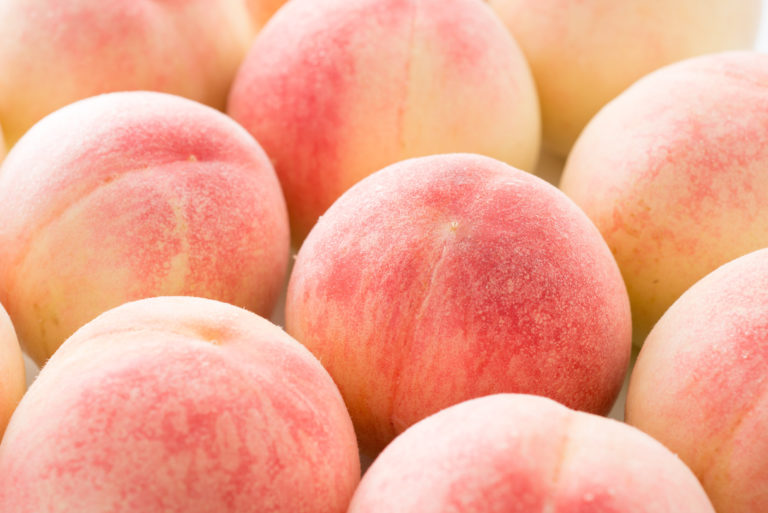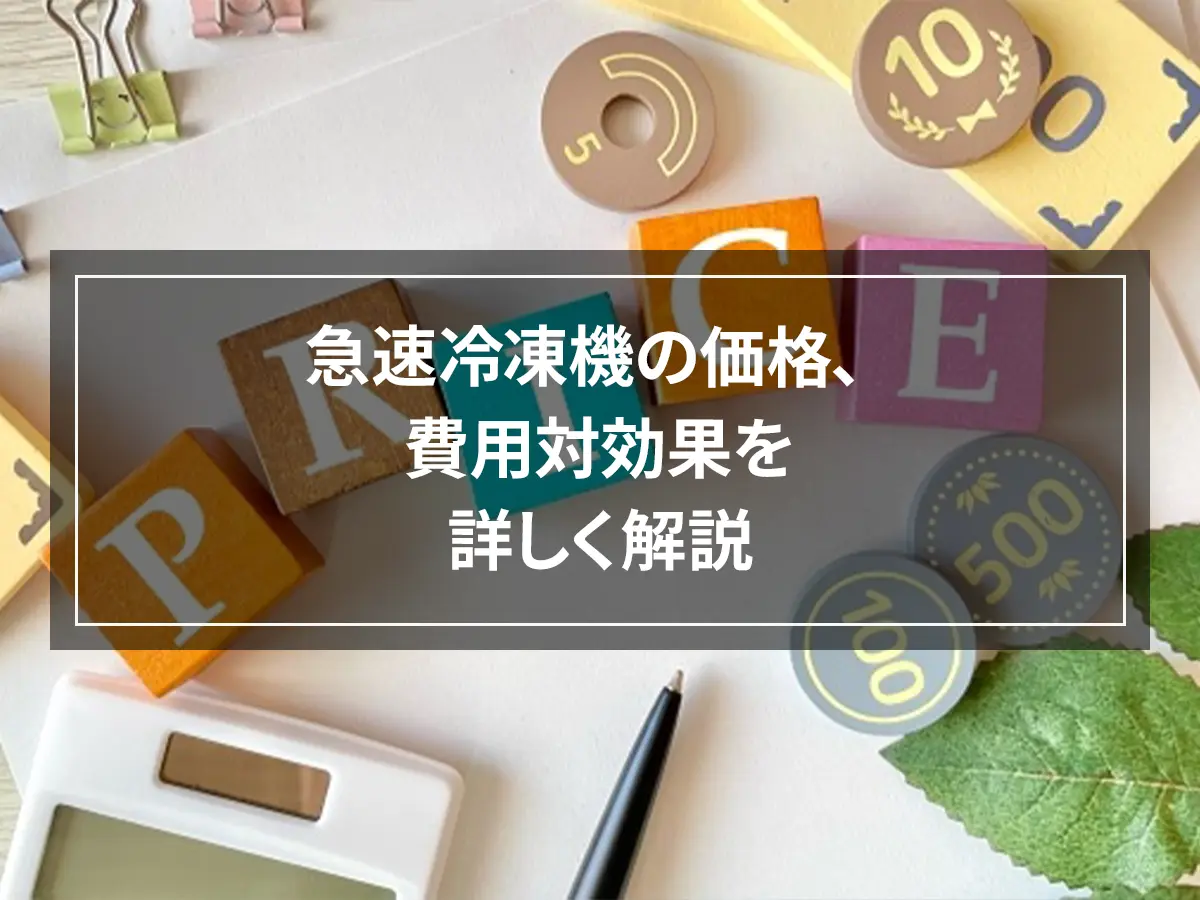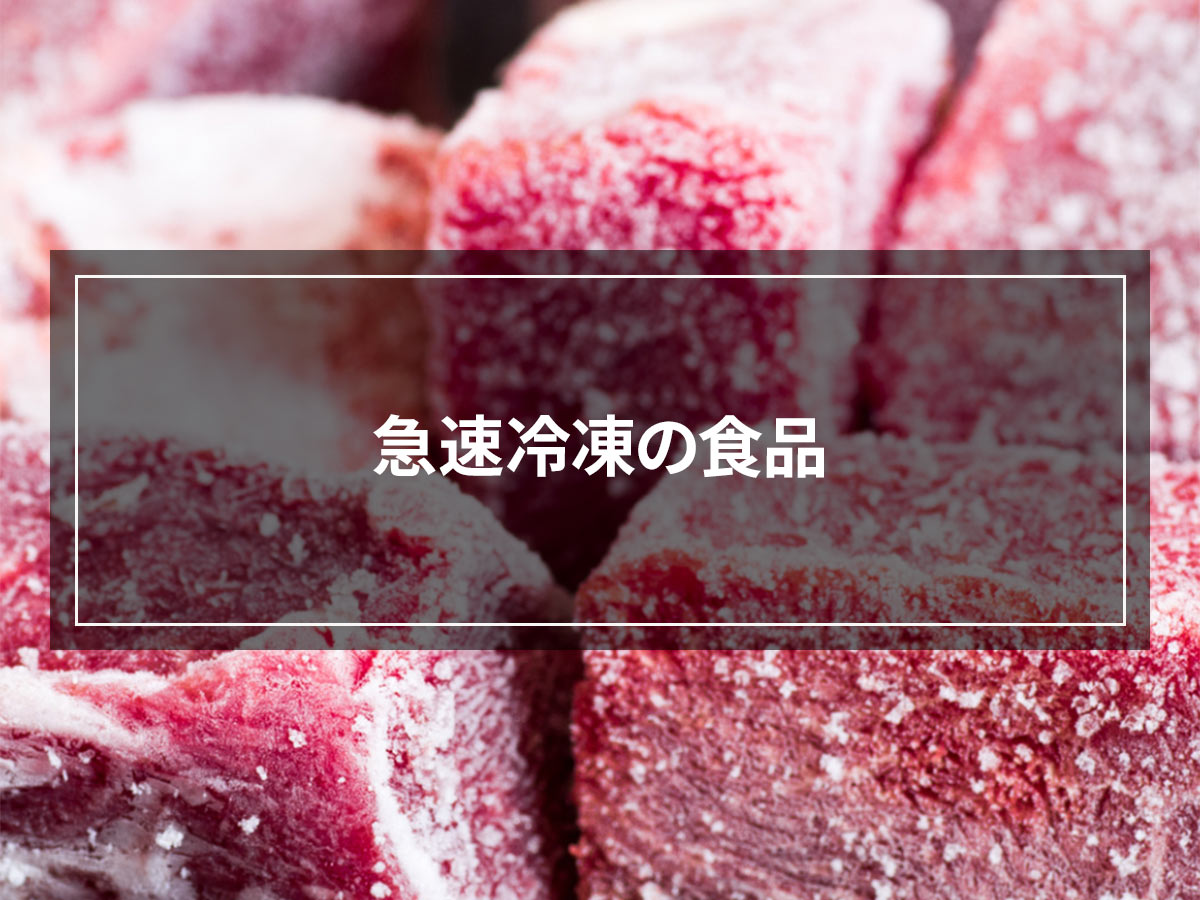[Current situation and countermeasures for food loss] What are efforts to reduce food waste and rapid freezing? ?
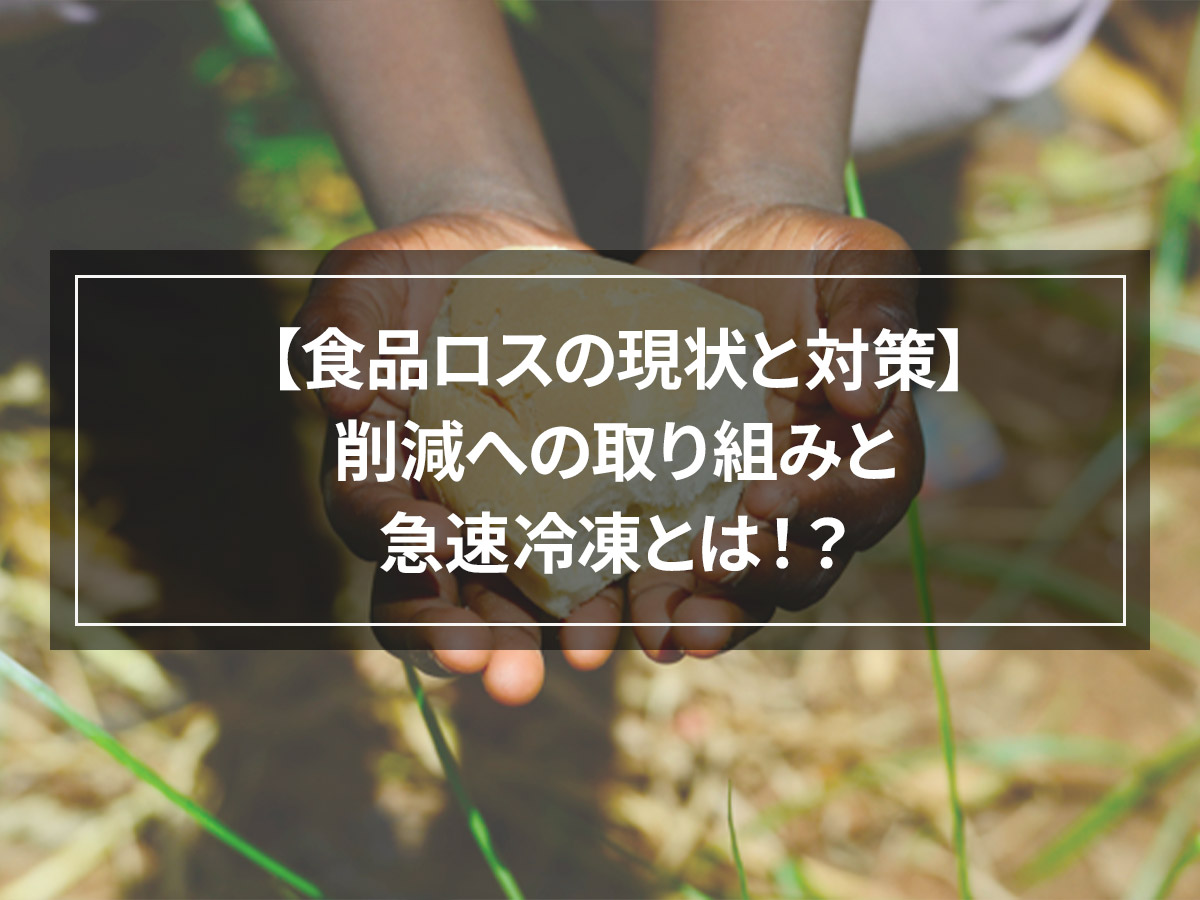
Do you know the current situation in Japan regarding food loss?
Japan has a much higher amount of food loss than other countries, and has the highest food waste rate in the world. The amount is said to be approximately 6 million tons per year, or more than 10 trillion in monetary terms.
Food loss also leads to environmental pollution, so it is important to reduce it. There are also benefits for yourself, such as the more you reduce food waste, the more money you save.
In order to reduce food loss, be aware of the current situation and countermeasures, and be aware of this in your daily life.
This page introduces the current situation and countermeasures for food loss in Japan, as well as initiatives by companies around the world. We will also share with you new technology that significantly reduces food waste. Please read until the end and help reduce food waste in Japan.
目次
What is food loss?
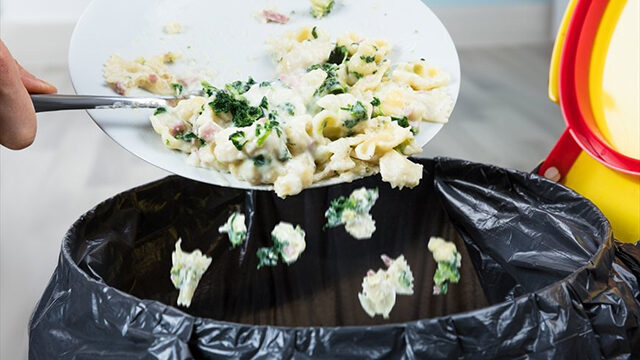
I will now explain food loss.
Simply put, food loss refers to food that is still edible but is thrown away. The word food loss has the same meaning.
Specific examples of food waste include unsold food from restaurants and retail stores, food that has expired and can no longer be sold, and leftover food from restaurants. At home, leftover ingredients and leftover food constitute food loss.
Current situation in Japan

Currently, it is said that more than 6 million tons of food is lost annually in Japan. If you convert this into monetary value, it is said to be equivalent to 10 trillion yen, making the food waste rate one of the highest in the world.
Considering the amount of food waste and Japan's population, it means that every Japanese citizen throws away one bowl of rice per day.
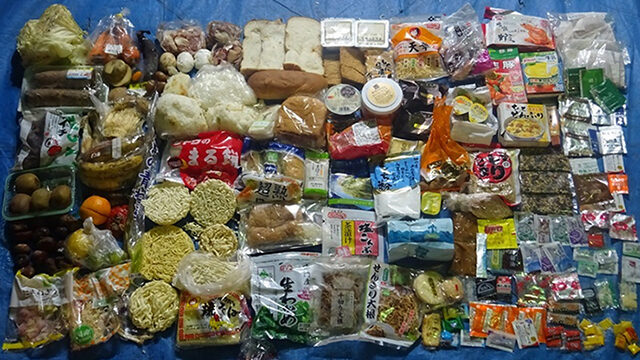
Food loss can be divided into business-related (products from retail stores, food manufacturers, restaurants, etc.) and household-related products (products from ordinary households).
Currently, approximately 3.2 million tons of aid is actually provided to developing countries around the world. Japan's food waste is twice this amount. This number also shows that the amount of food waste in Japan is very large.
While there are people suffering from hunger in developing countries, it is recognized that in developed countries a lot of food is thrown away and large amounts of CO2 are emitted due to food waste being disposed of as garbage. Masu.
So far, we have introduced food loss and its current situation. I hope you understand that there is a lot of food waste in Japan, and there are many problems.
Many of you may be wondering if there is a way to improve this situation. In fact, it is possible to reduce food waste even at home. Here we will explain how to reduce food waste at home.
Measures to reduce at home

Is there anything we can do to eliminate food waste?
Approximately half of food waste comes from households. Therefore, the government is actively disseminating information on how to reduce food waste at home as a countermeasure against food loss.
There are four initiatives recommended by the government:
``Don't buy too much'', ``use up'', and ``eat up'' ingredients
Even if the food is cheap, if you can't eat it in the end, you end up losing money. It is important to only buy as much as you can eat, use it all, and eat up everything you make without leaving anything behind.
For this reason, be aware of what's inside your refrigerator and consider expiration dates before purchasing.
Use leftover ingredients for other dishes
Make only as much as you can eat so that you don't have any leftovers, and even if you have leftovers, store them and eat them.
It is important to find ways to eat up leftover food deliciously by referring to arranged recipes.
Understand the difference between "expiration date" and "best before date"
The expiration date is the date by which food is safe to eat. Appears on foods whose quality deteriorates relatively quickly. Do not eat food after the expiration date has passed.
The expiry date is the period by which a product can be eaten deliciously. Just because the expiration date has passed doesn't mean you can't eat it right away. Judge by appearance and smell, and eat what you can.
By understanding the difference between "use by date" and "best before date" and deciding what you can eat, you can greatly reduce food waste.
Avoid leftover food when eating out
Some of you may have had the experience of eating out and being unable to finish the portion of food that was larger than you expected.
When eating out, choose smaller portions or order smaller portions to avoid leftovers.
The information the government is sending out like this is not special. It is important that each and every one of us be conscious of eliminating food waste.
From here, please take a look at efforts to reduce food loss in countries other than Japan.
Initiatives around the world
Food loss is a problem overseas as well, but in other countries local organizations and governments have already taken measures to reduce food loss.
This time we will introduce some of them.
[America] Doggy bag
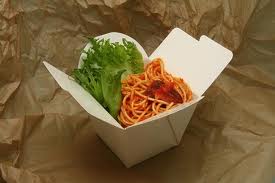
[France] Food waste prohibition law
Since 2016, France has had a law called the Food Waste Prohibition Act.
This is a law that prohibits large supermarkets from discarding food, and imposes fines based on the amount of food discarded.
Food not consumed in stores must be donated to volunteer organizations.
[Denmark] Expired food supermarket
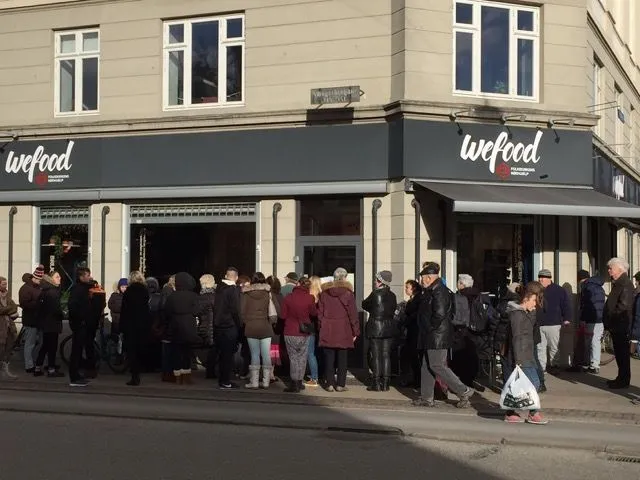
In Denmark, there is a supermarket called ``WeFood'' that mainly sells expired foods.
We collect food that is scheduled for disposal from food storage warehouses and food manufacturers, and sell it at 30 to 50% off the regular price. In addition to foods that have expired, they also sell items that are in bad shape.
It is also unique in that it is run by a non-profit organization.
[Spain] Solidarity Refrigerator
In Spain, each region has a shared refrigerator called a "solidarity refrigerator." Anyone can store dishes, ingredients, and other unused items in the Solidarity Refrigerator, which anyone can use freely.
You can put anything in it other than raw meat, fish, and eggs, and the person who runs it regularly maintains it. It seems that 200 to 300 kg of food can be saved from food waste in about a year.
Many organizations and companies around the world are starting to take action to combat food loss. While various efforts are being made, what kind of countermeasures is being taken in Japan?
In fact, there are many companies in Japan that are working to reduce food loss.
Japanese company tackling food waste through apps and mail order
There are many companies in Japan that are working to reduce food loss.
This time, we will introduce two of the most representative services.
TABETE
TABETE is a platform that matches leftovers from restaurants and retail stores with users who want to eat them.
Stores can set any price and transaction period and post it on TABETE. Users can choose from the items listed, complete the online payment, and pick up the meal directly at the store by the pick-up deadline.
This is a popular service that has been featured in many media outlets.
KURADASHI
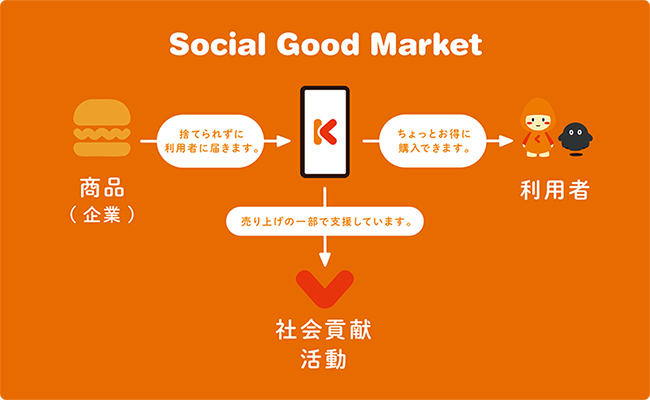
KURADASHI is an online mail order service that sells products that were previously discarded, such as products that are out of season or nearing their expiration date, at special prices.
Products from over 100 manufacturers are listed and can be purchased at up to 90% discount.
We introduced two services. Both of these services are very attractive, but there are other, lesser-known ways to eliminate food waste.
That is rapid freezing.
When you hear about rapid freezing, some of you may think, "I already know about freezing." rapid freezing is an innovative technology that is different from regular freezing and greatly reduces food waste.
Lastly, I would like to introduce rapid freezing.
What is rapid freezing to reduce food loss?
rapid freezing is a special freezing technology that allows food to return to its original quality by freezing it in a short period of time.
With conventional freezing, when the water in the food freezes, it also damages the cell membranes, resulting in drips and other umami flavor components, resulting in quality deterioration. rapid freezing does not damage the cells of the food, and even after thawing, it maintains the same quality as before freezing, allowing for long-term storage.
As a result, it will now be possible to provide food in a delicious state that previously would have been wasted due to expiration dates or deterioration of quality.
By using rapid freezer, there are cases where food waste, such as 200 kg of oysters that were produced every year, 100 percent soba noodles that do not last long, and tiger puffer fish that were served at restaurants, has been reduced to zero. Many businesses have introduced rapid freezer to reduce food waste.
>> Click here if you would like to know about examples of using rapid freezing
Conclusion
We introduced the current state of food loss, countermeasures that can be taken at home, and initiatives taken by companies around the world and in Japan.
There is a lot of food loss in Japan these days, and it is a major social problem.
We also introduced rapid freezing, which significantly reduces food waste. rapid freezing can reduce food waste in a variety of situations.
Food loss can be reduced if everyone becomes more aware. This is true not only at businesses but also at home.
Let's be conscious and act to reduce food loss.
>> Click here if you want to know more about rapid freezing
>> Click here if you would like to know about examples of using rapid freezing




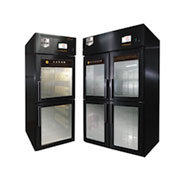


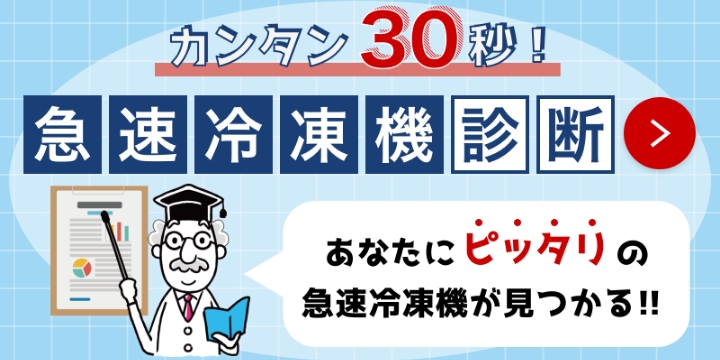
![[Storage period increased by 30 times! ] Achieving a stable supply of raw whitebait!](https://shunkashutou.com/wp-content/uploads/2016/11/579c55e6d32e1385c250e8e7c3ed59a71.jpg)
![[Sales increased 100 times! ] rapid freezing the signature menu “Ni-katsu sandwich”!](https://shunkashutou.com/wp-content/uploads/2016/11/IMG_02391.jpg)
![[Horse sashimi] We have significantly reduced waste loss with rapid freezer!](https://shunkashutou.com/wp-content/uploads/2016/11/5fda59d0cbcdabde18e58c3c58c09ed0.jpg)
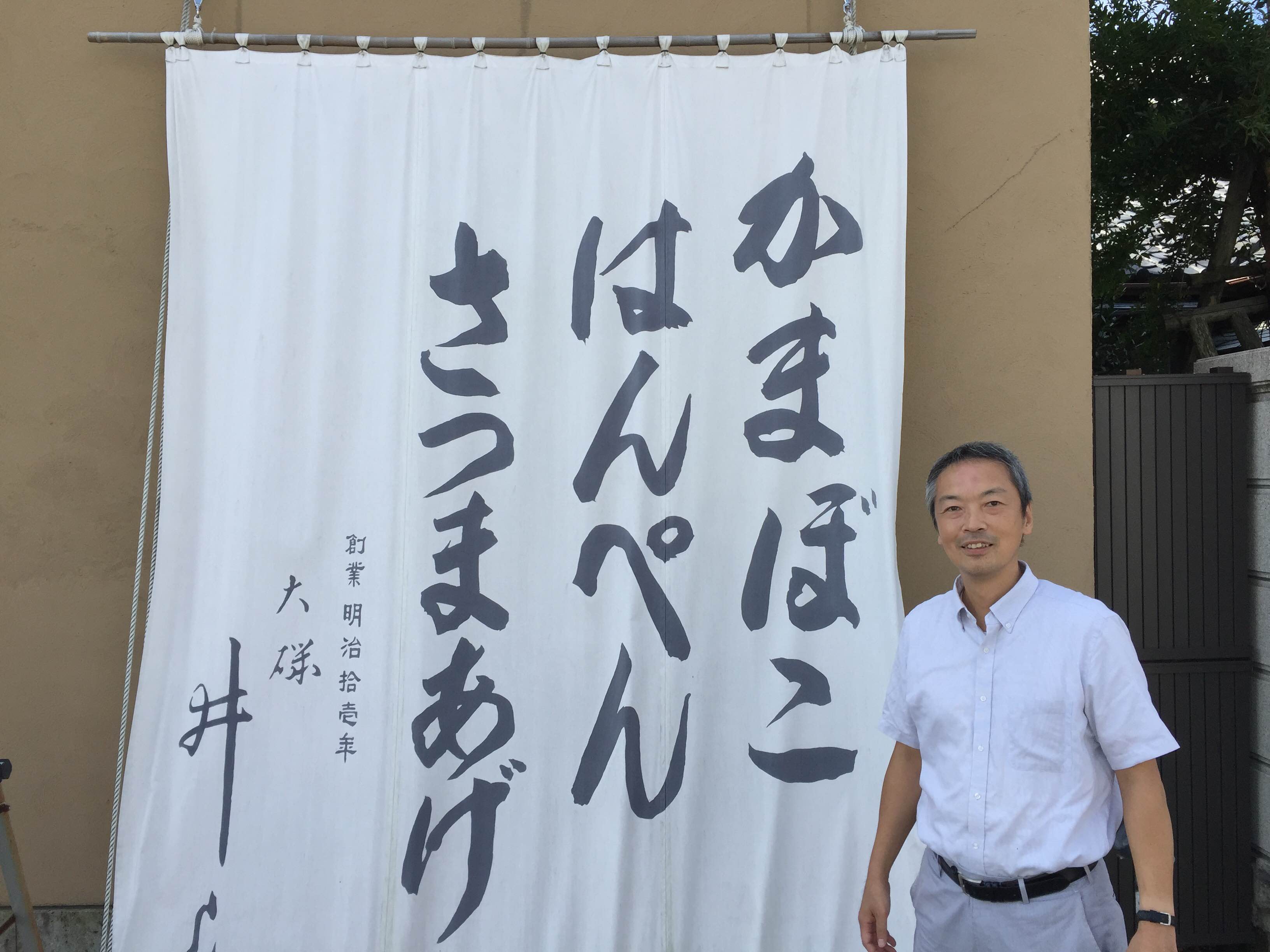
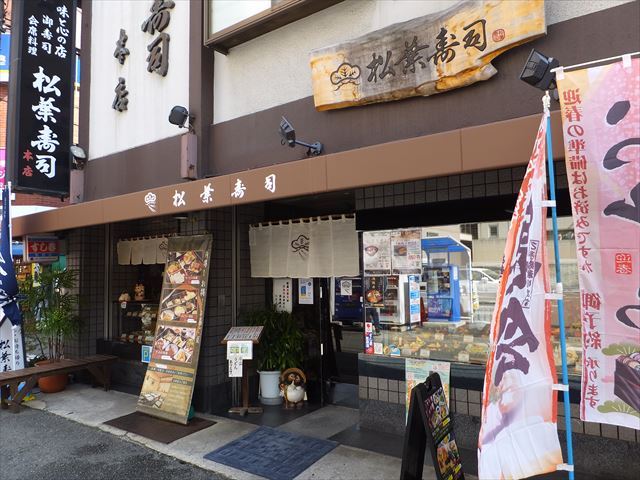


![[Storage period increased from 3 days to half a year! ] Restaurants are expanding their business using wholesale and mail order!](https://shunkashutou.com/wp-content/uploads/2018/04/66c19942ab4ba346fdb64ccc04cde373.png)
![[Reduce loss from 200 kg of oysters to zero] Improve loss and expand business with rapid freezer](https://shunkashutou.com/wp-content/uploads/2018/06/19785ca583a8d3c4041c7c192d041b0d.jpg)
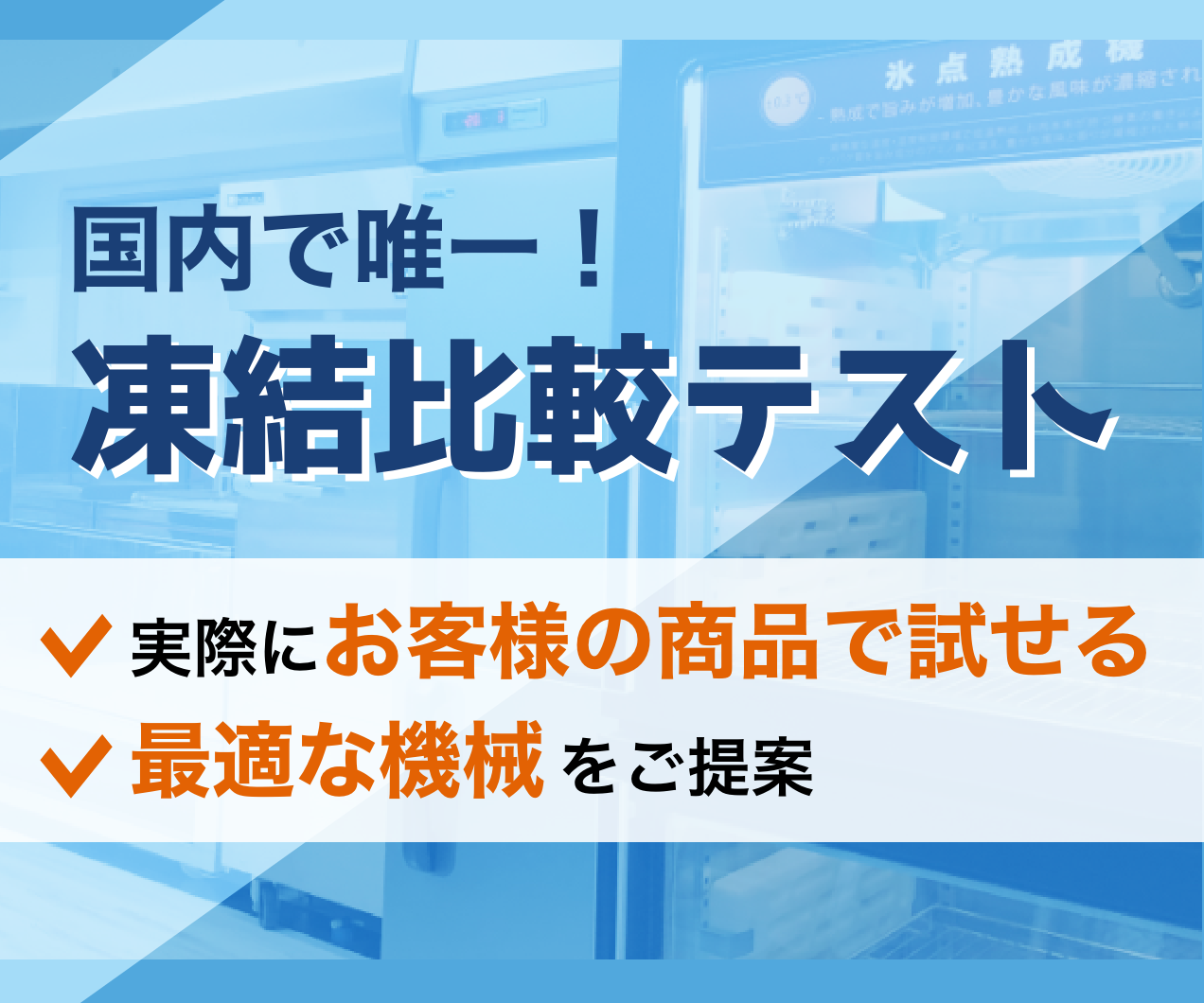
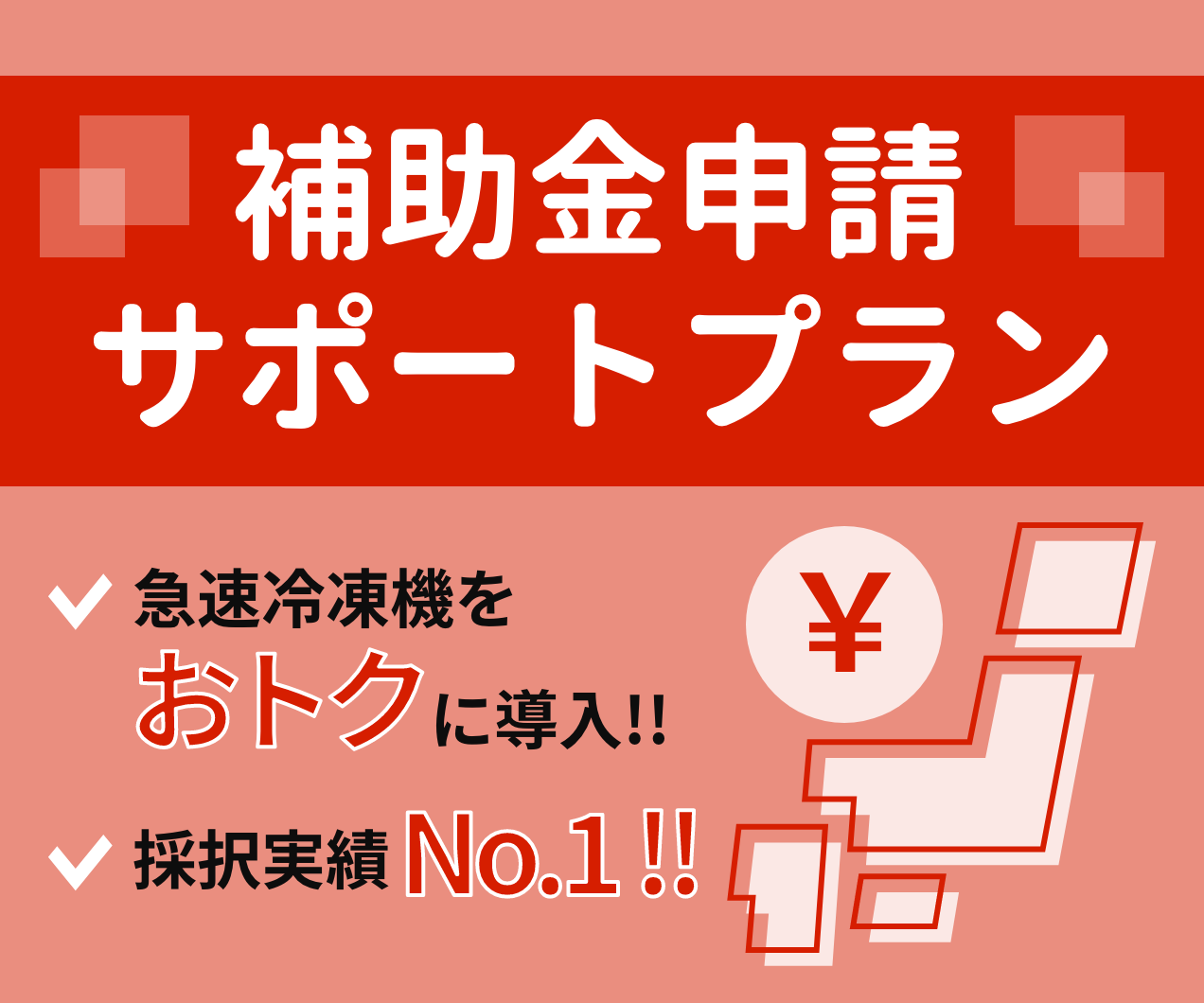
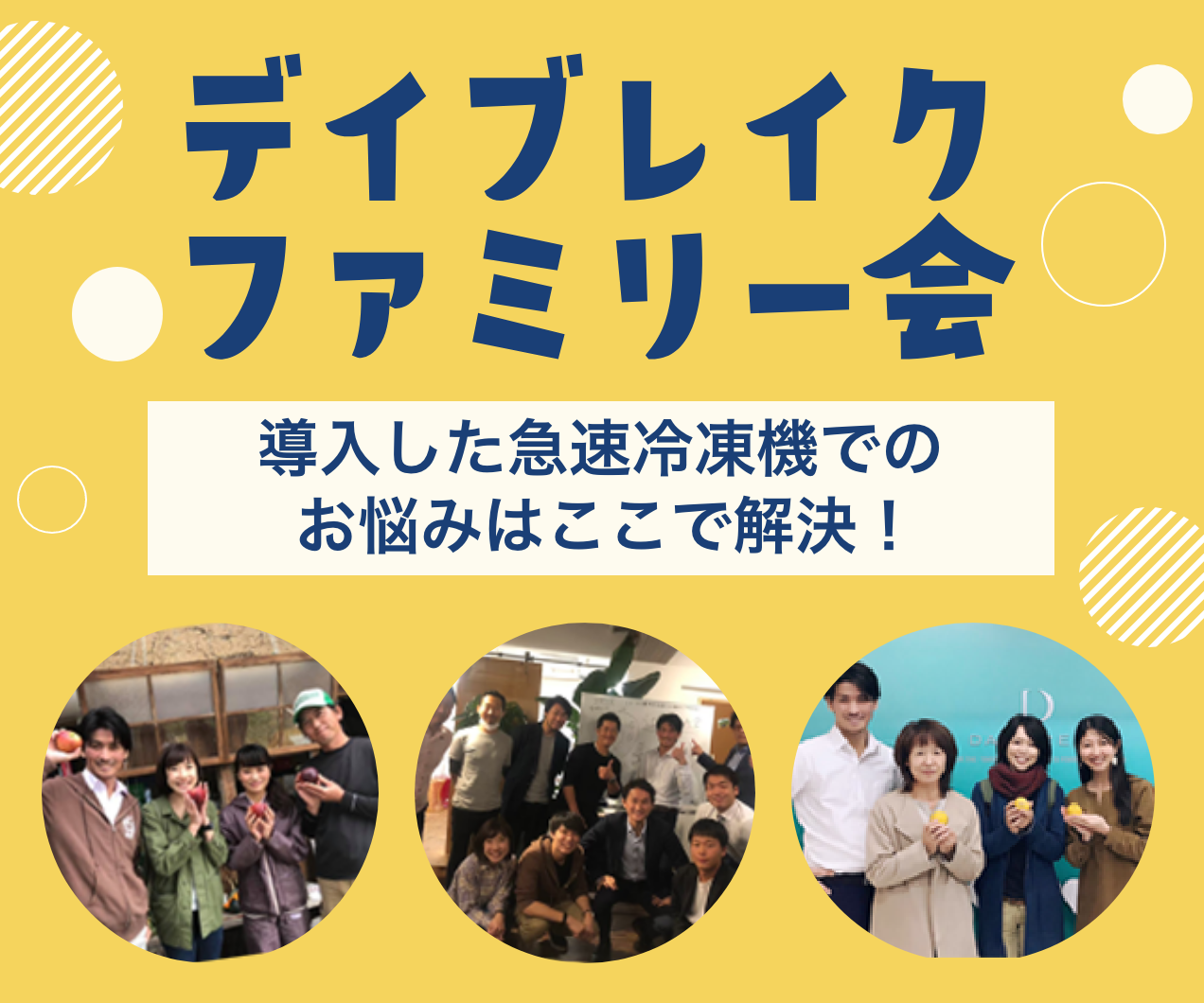
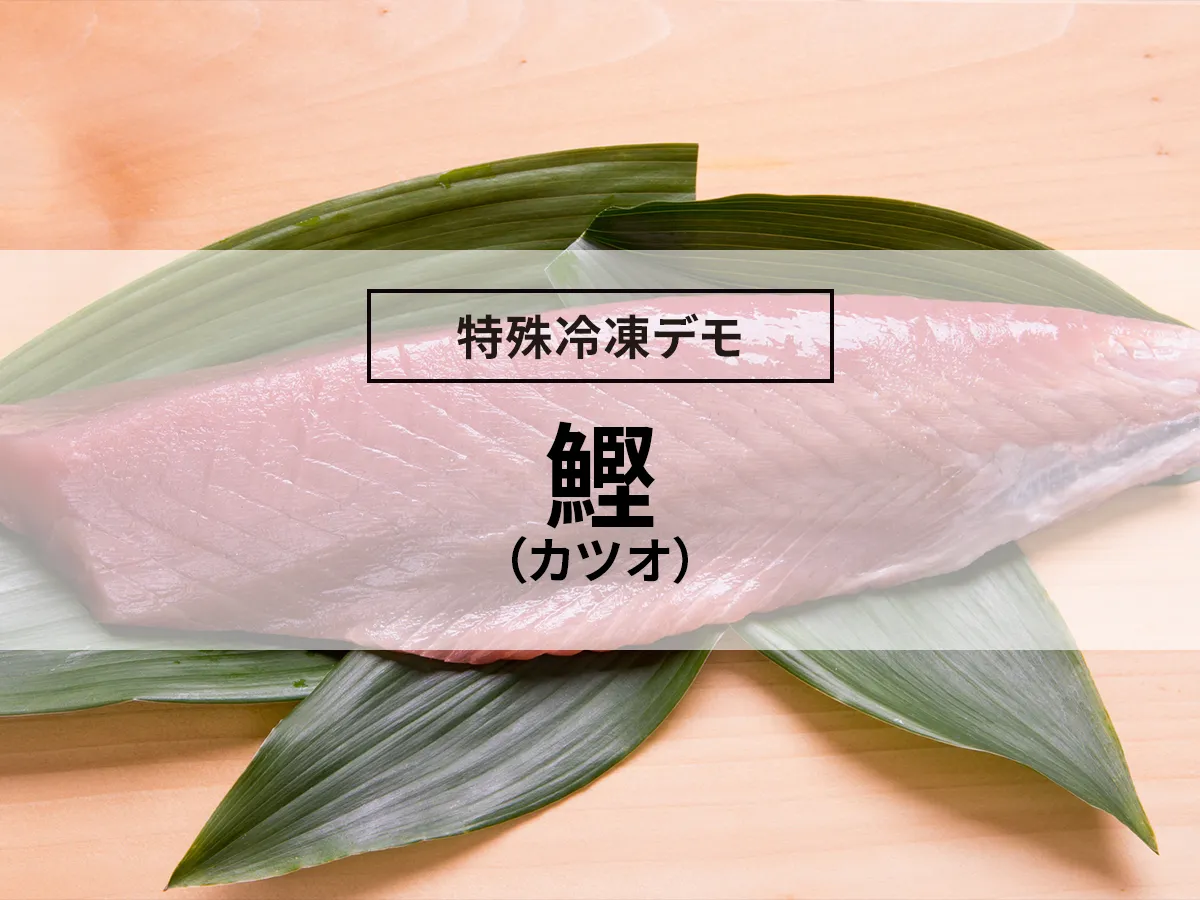
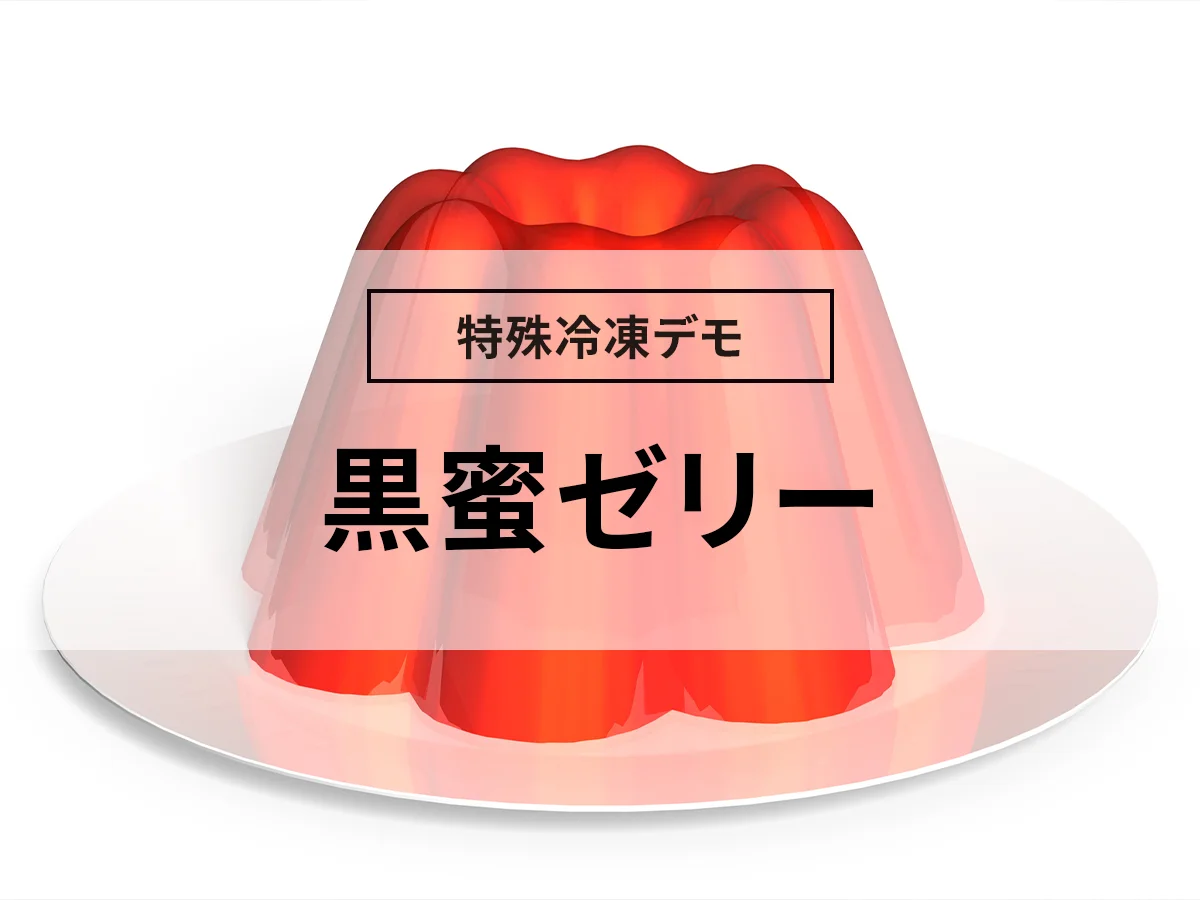
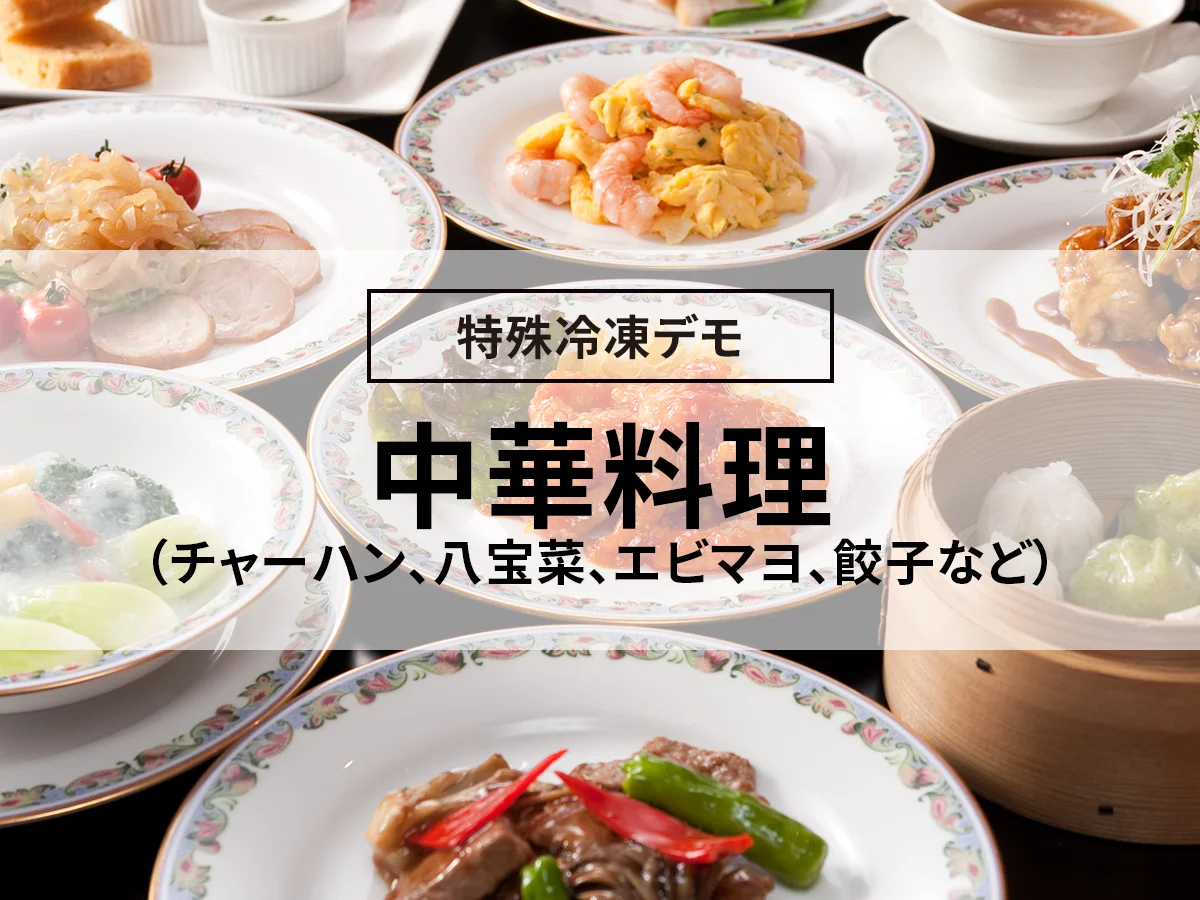
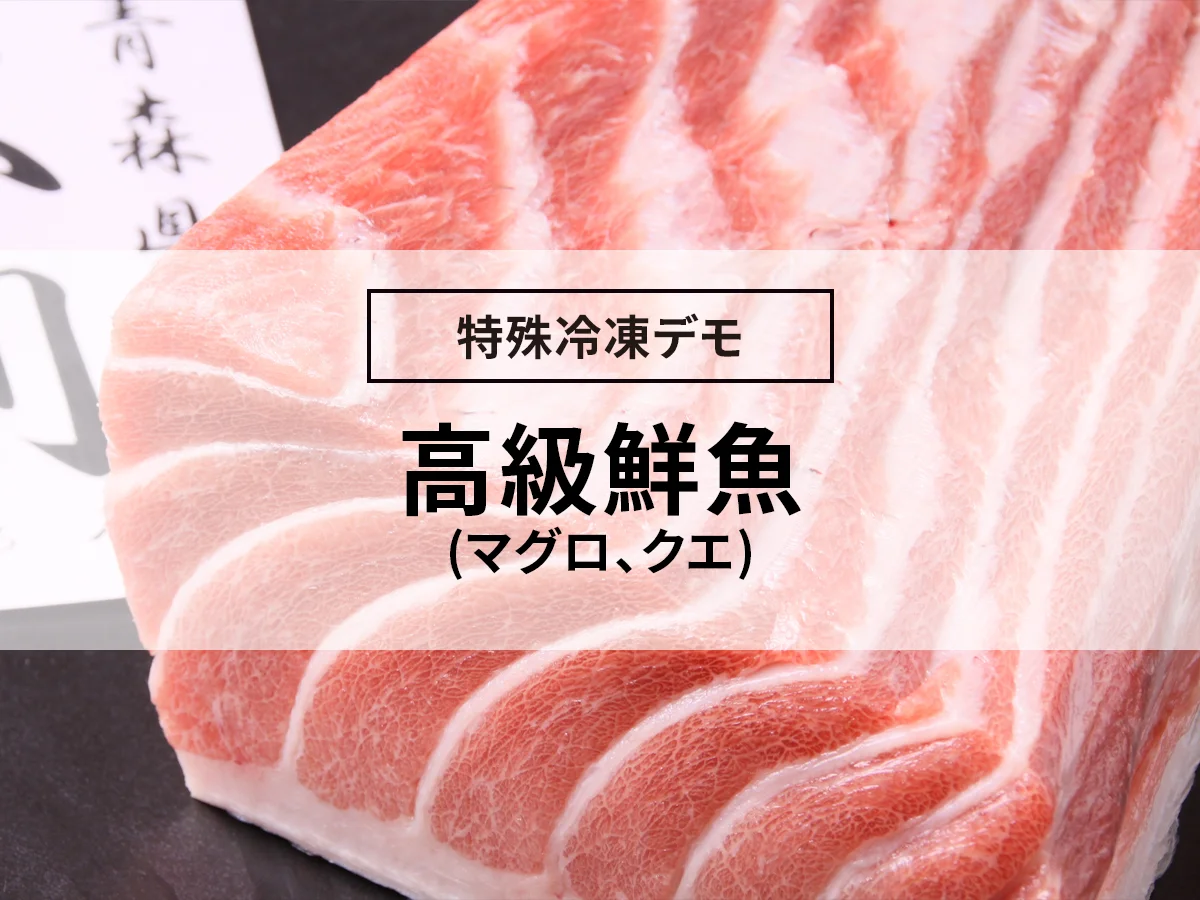
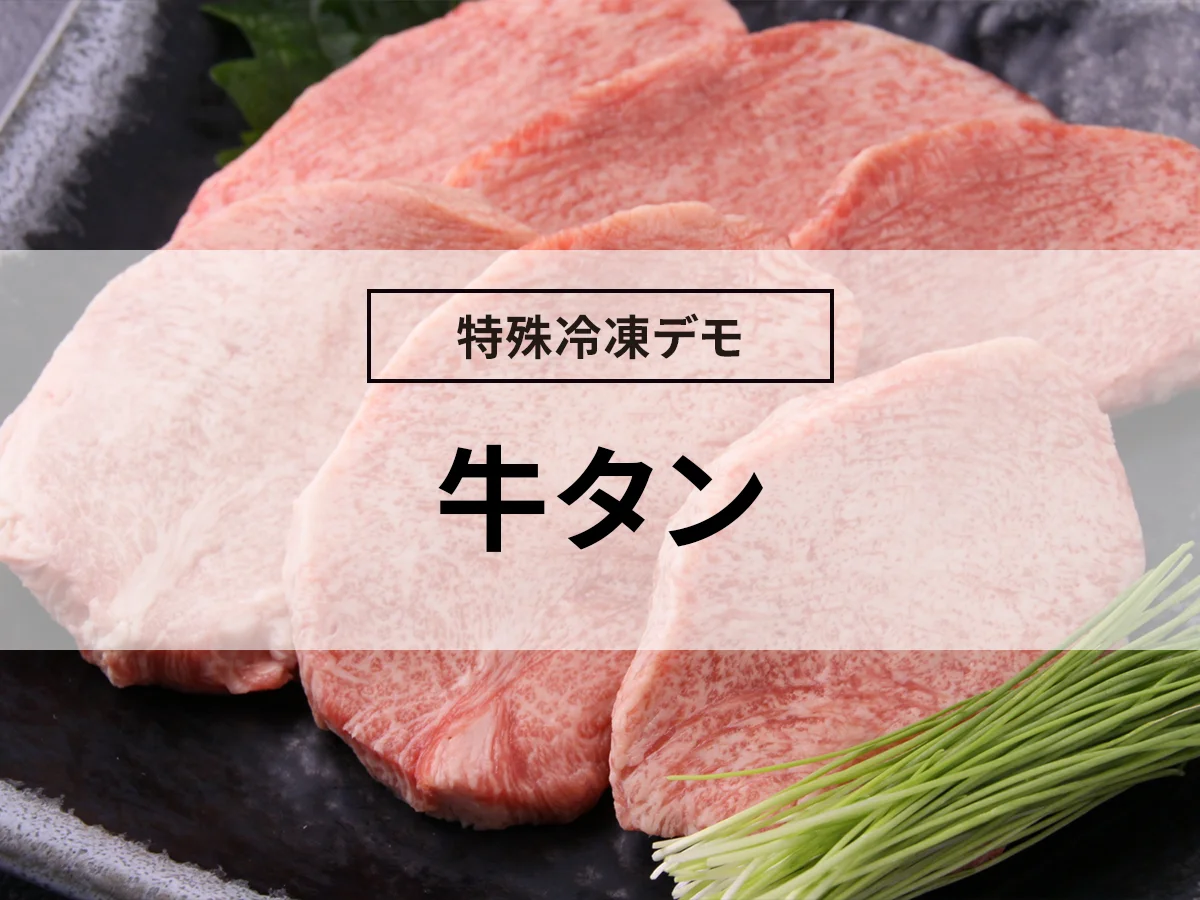
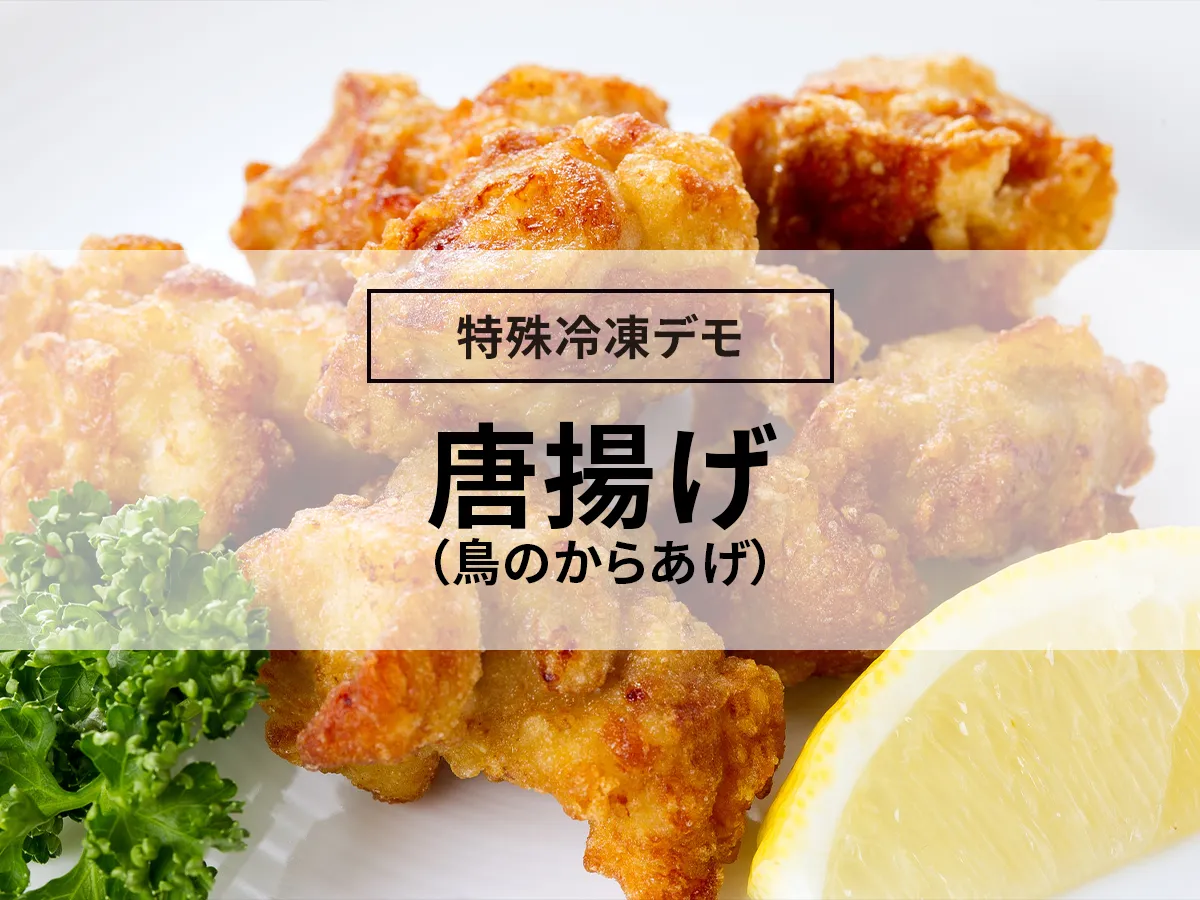
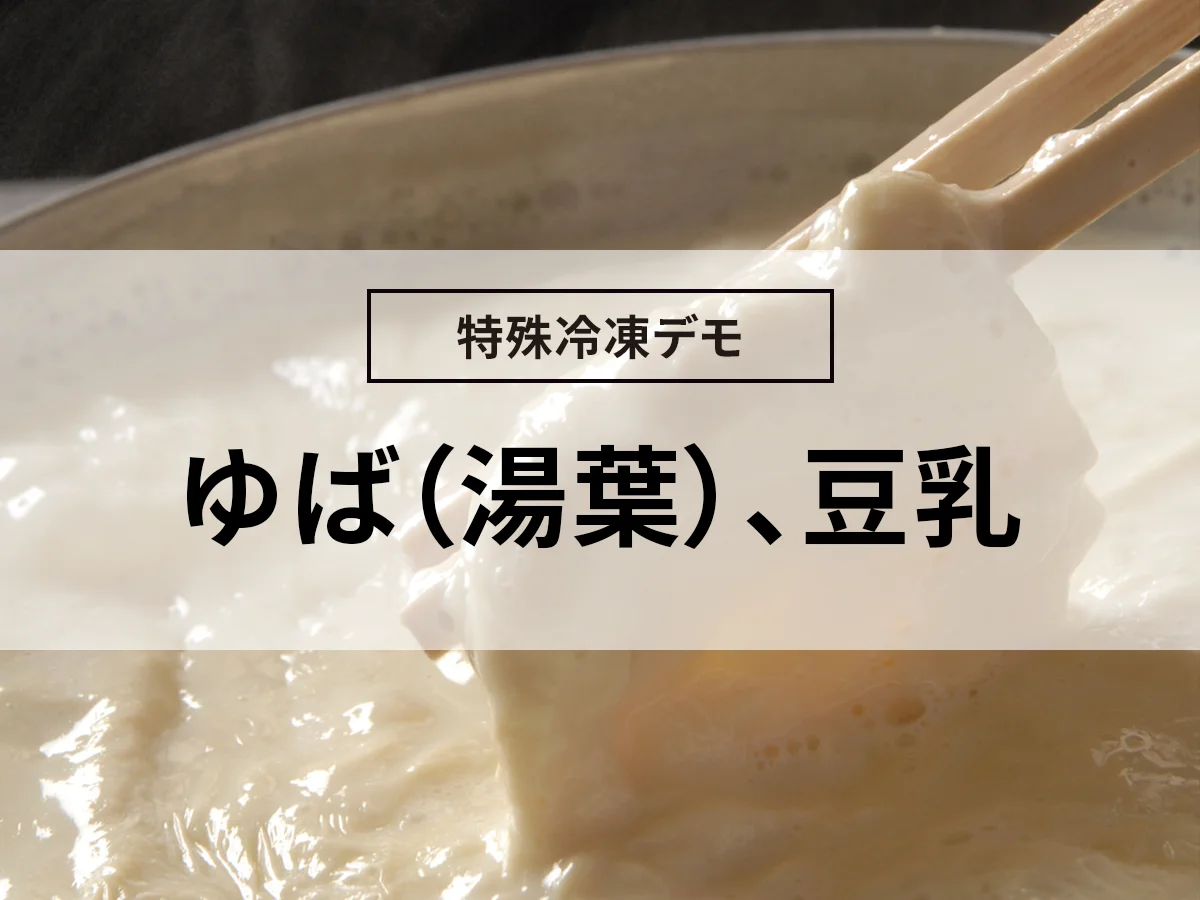
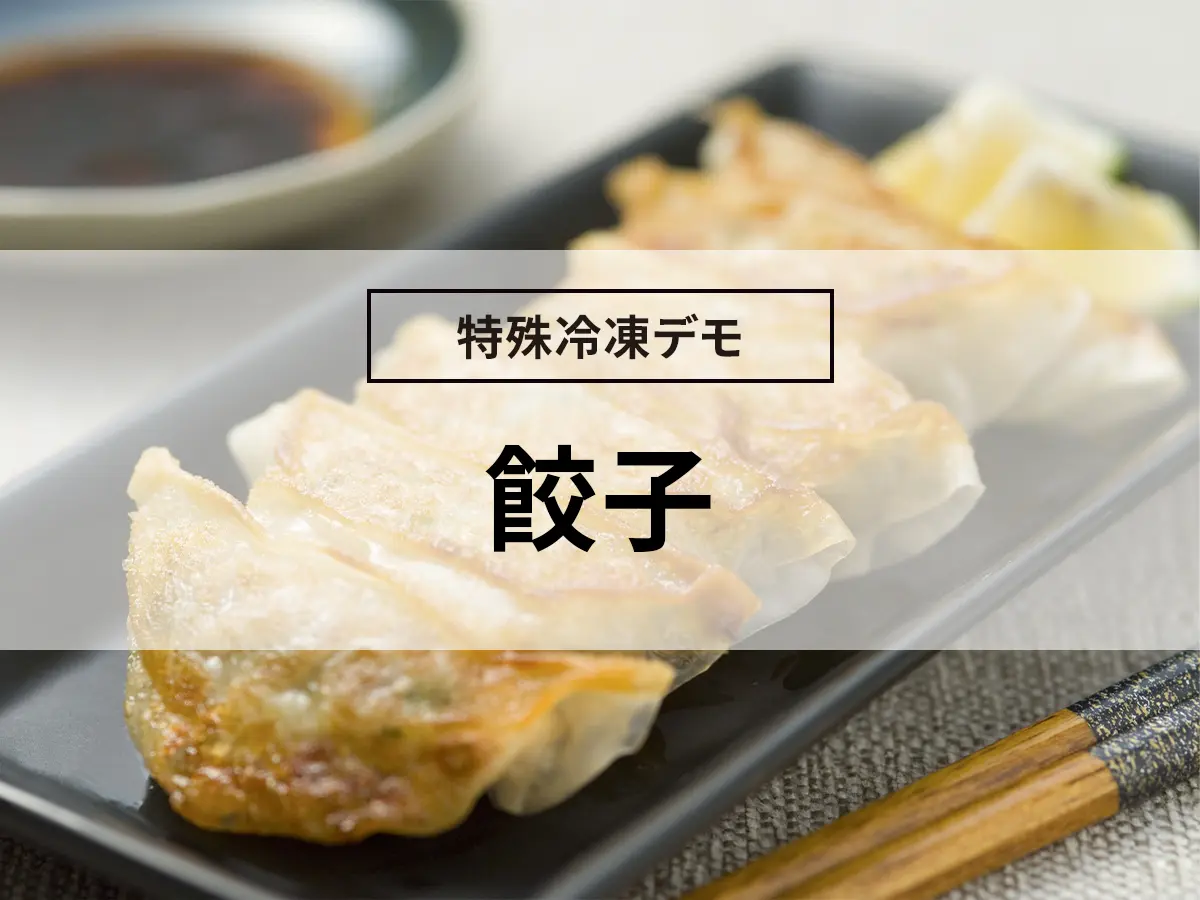
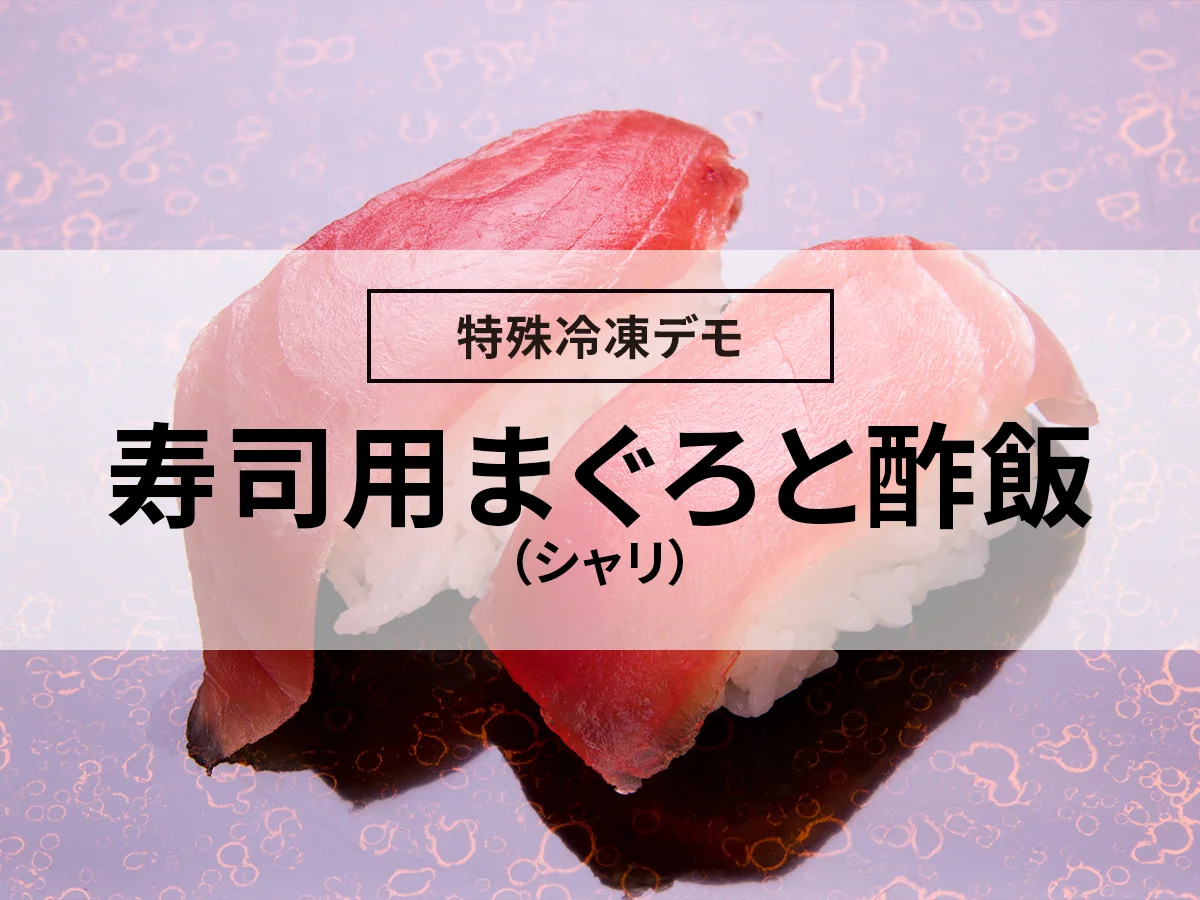
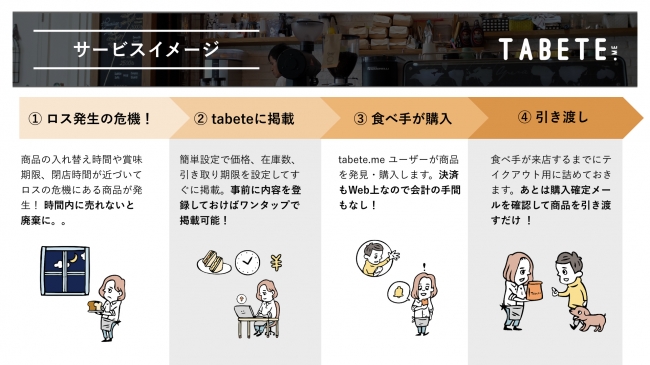


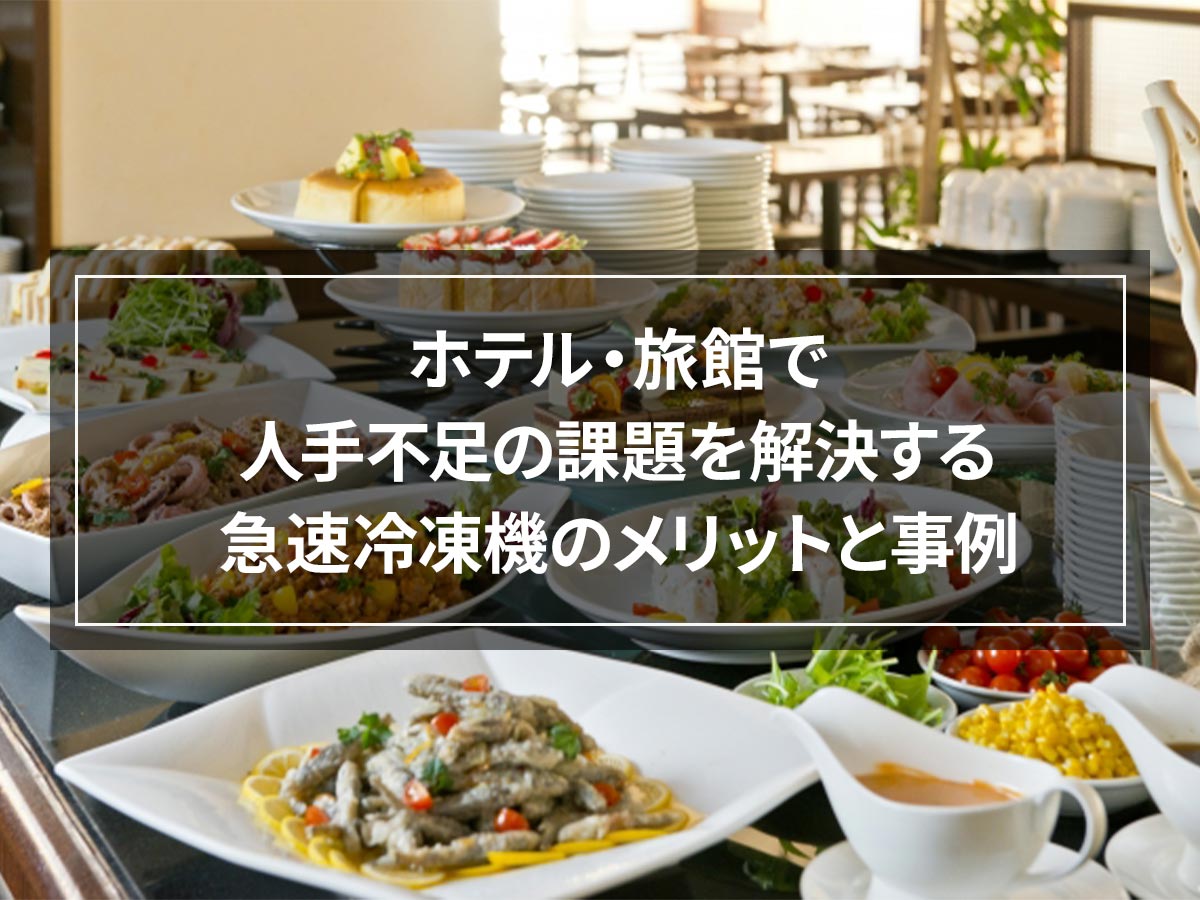
![[Can it be frozen? ] How to freeze dried daikon radish and arrange recipes!](https://shunkashutou.com/wp-content/uploads/2023/09/84f89f802d6869949972432e7b3be19c.jpg)
![Introducing the method and recipe for freezing shimeji mushrooms [Explanation with photos]](https://shunkashutou.com/wp-content/uploads/2023/09/shimeji-768x510-1.jpg)
![[Solving issues in the retail industry] Liquid freezing machines that should be introduced in supermarkets](https://shunkashutou.com/wp-content/uploads/2015/09/60172f0f261fd750c4016165c3c56cc8.jpg)
![Introducing how to freeze lettuce and recipes [Explanation with photos! ]](https://shunkashutou.com/wp-content/uploads/2023/09/e550b4a0d886ba3aa277d5d8fc87ba73.jpg)
![Explaining how to freeze Maitake mushrooms, their nutritional value, and recipes! [Explanation with photos! ]](https://shunkashutou.com/wp-content/uploads/2023/09/9face03809f7fcaf2e3599773b2e8c80.jpg)
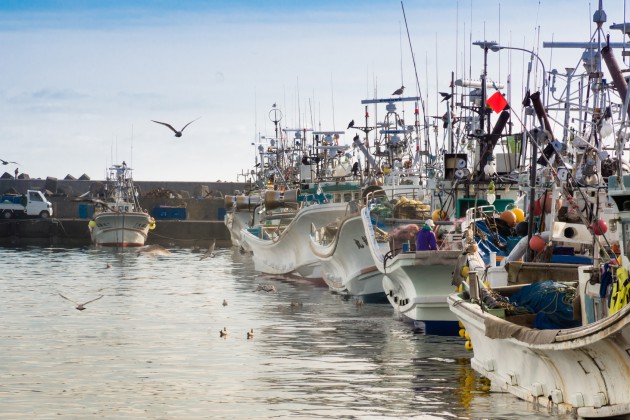
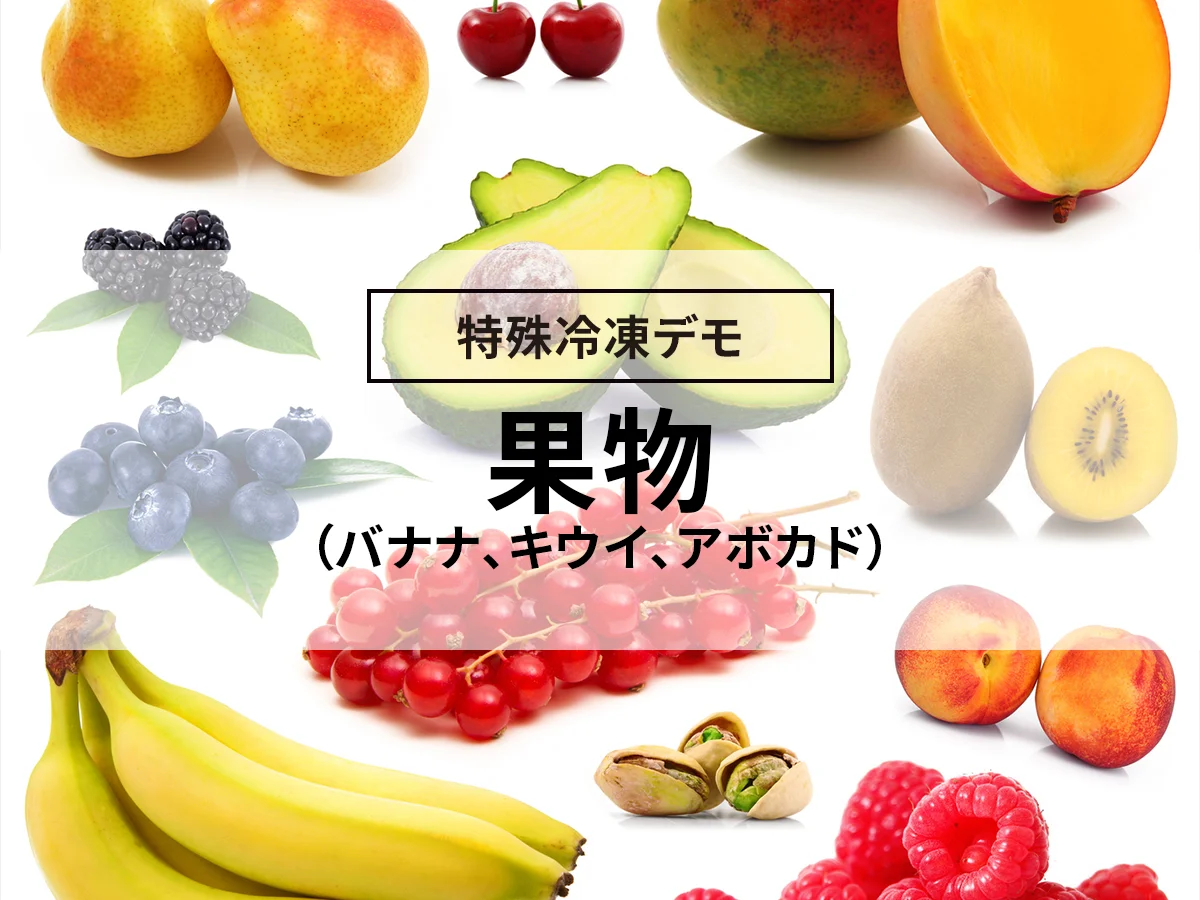
![[Easy installation and bulk storage] Prefabricated freezer functions and prices](https://shunkashutou.com/wp-content/uploads/2015/09/e52a1bacf6f05c6337143048f88802d7.jpg)
![[Improve your freezer] Tips on temperature control and freezing methods](https://shunkashutou.com/wp-content/uploads/2015/06/freezertemp.jpg)
![[Distribute high quality mangoes! ] New frozen processing of mangoes using rapid freezing!](https://shunkashutou.com/wp-content/uploads/2016/05/4e9ff0df5721aa6f8fbdfae6d56ad787.jpg)
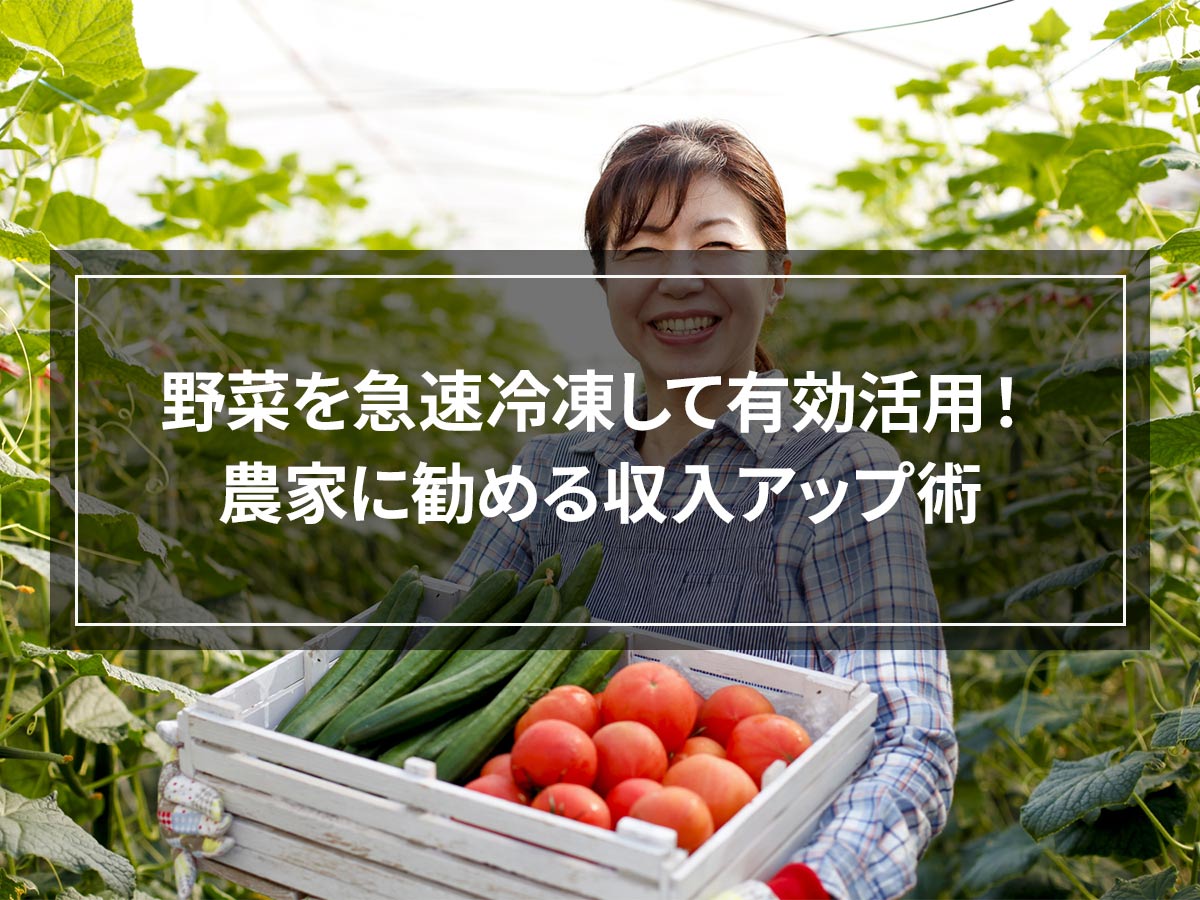
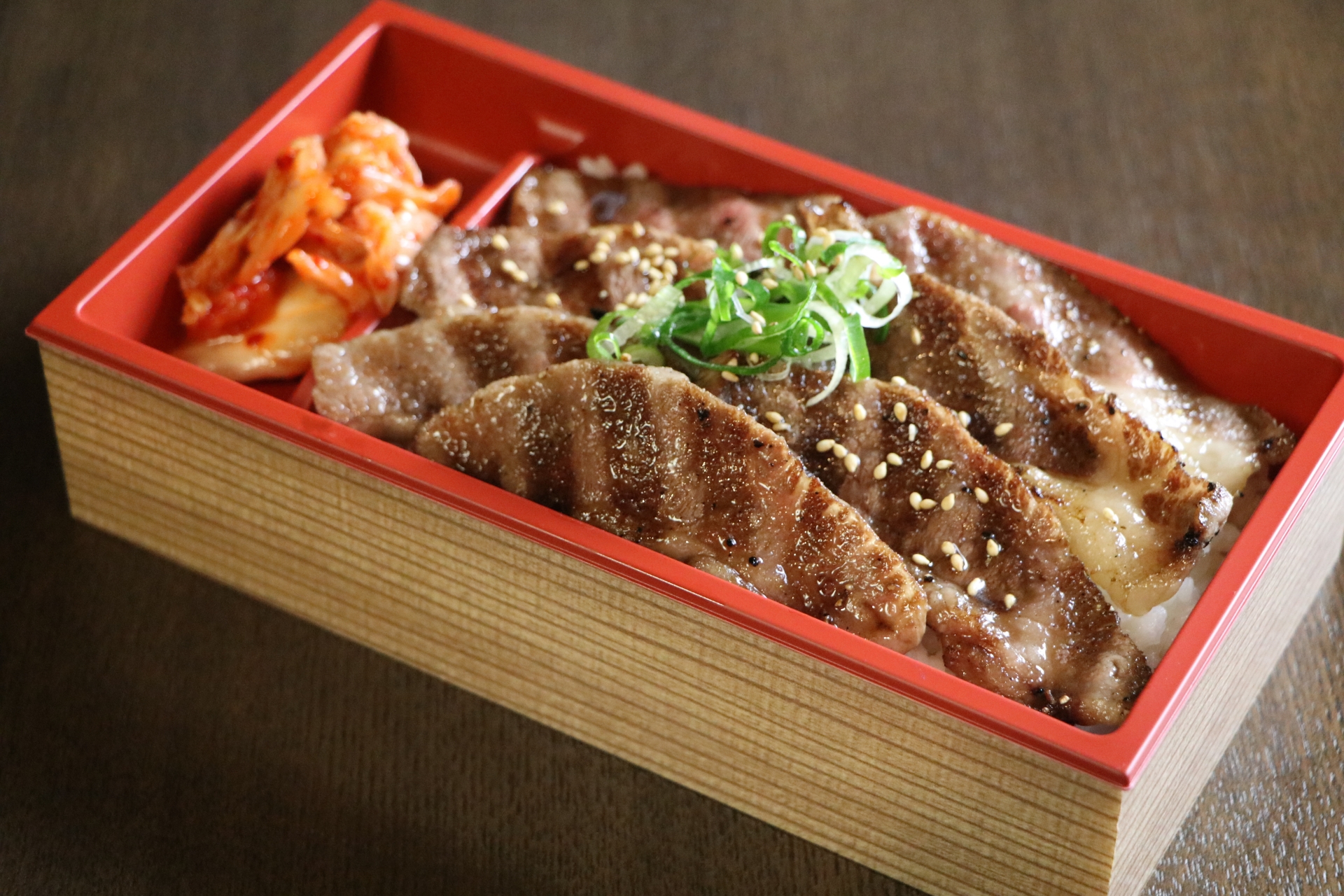
![[Successful example of rapid freezing] Efforts of Yuko Fisheries Cooperative and regional revitalization by women](https://shunkashutou.com/wp-content/uploads/2015/11/68950ce21415f187d34a8a1d5b48956a.jpg)
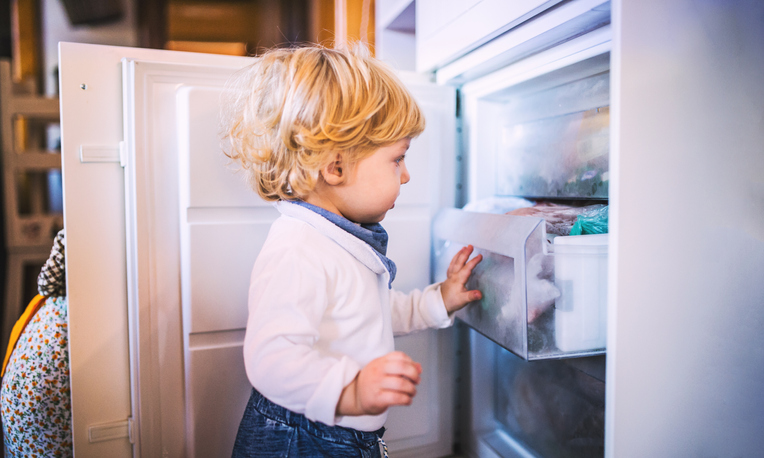
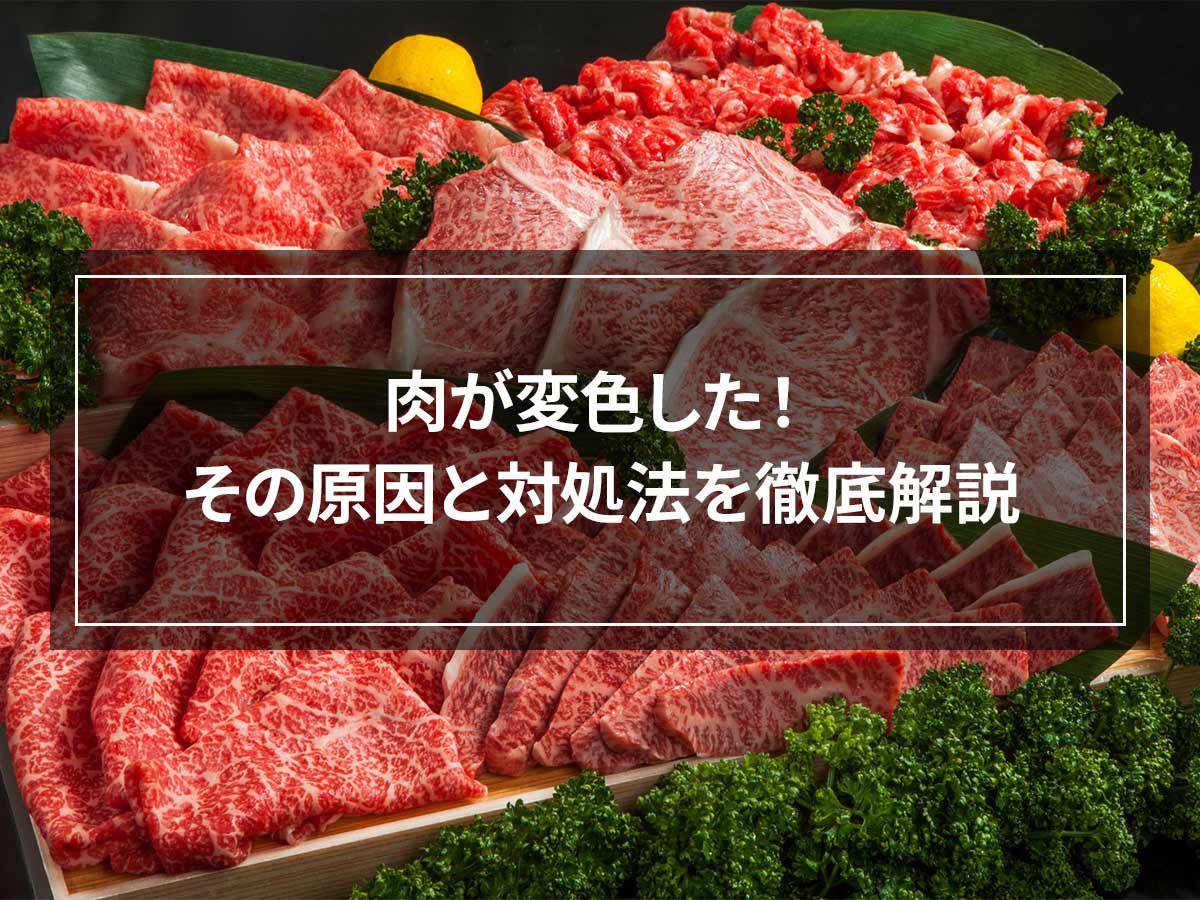
![How to freeze parsley, nutrition, and 5 easy recipes! [Solved with photos! ]](https://shunkashutou.com/wp-content/uploads/2023/09/paseri-768x513-1.jpg)
![[Explanation with photos! ] How to freeze pumpkin, storage period, and 5 recipes](https://shunkashutou.com/wp-content/uploads/2023/10/36d3edf3acec7cf27351bd1211e770ac.jpg)
![[Achieving low cost and high quality] The problems of pubs can be solved with a quick freezer!](https://shunkashutou.com/wp-content/uploads/2016/02/11d55612344a4cbad2ad506ae700c81b.jpg)
![How to freeze celery, nutrition, and 5 recipes! [Explanation with photos! ]](https://shunkashutou.com/wp-content/uploads/2023/09/serori-768x512-1.jpg)
![[With photos] Lemon freezing and storage period, recipes for how to use frozen lemons](https://shunkashutou.com/wp-content/uploads/2023/09/21a01b705aff194717e200bf6dc6ce5b.jpg)
![[Make frozen oysters even more delicious! ] Correct thawing method and usage recipes](https://shunkashutou.com/wp-content/uploads/2023/10/5855c6e6d6dbdb298f86405b4b522329.jpg)
![[Explanation with photos! ] How to freeze green beans, storage period, and 5 recipes](https://shunkashutou.com/wp-content/uploads/2023/09/f3dbbe5b1d05a50f514a833efdceced9.jpg)
![How to freeze tomatoes, storage period, and 5 recipes! [Explanation with photos! ]](https://shunkashutou.com/wp-content/uploads/2023/10/tomato-768x513-1.jpg)
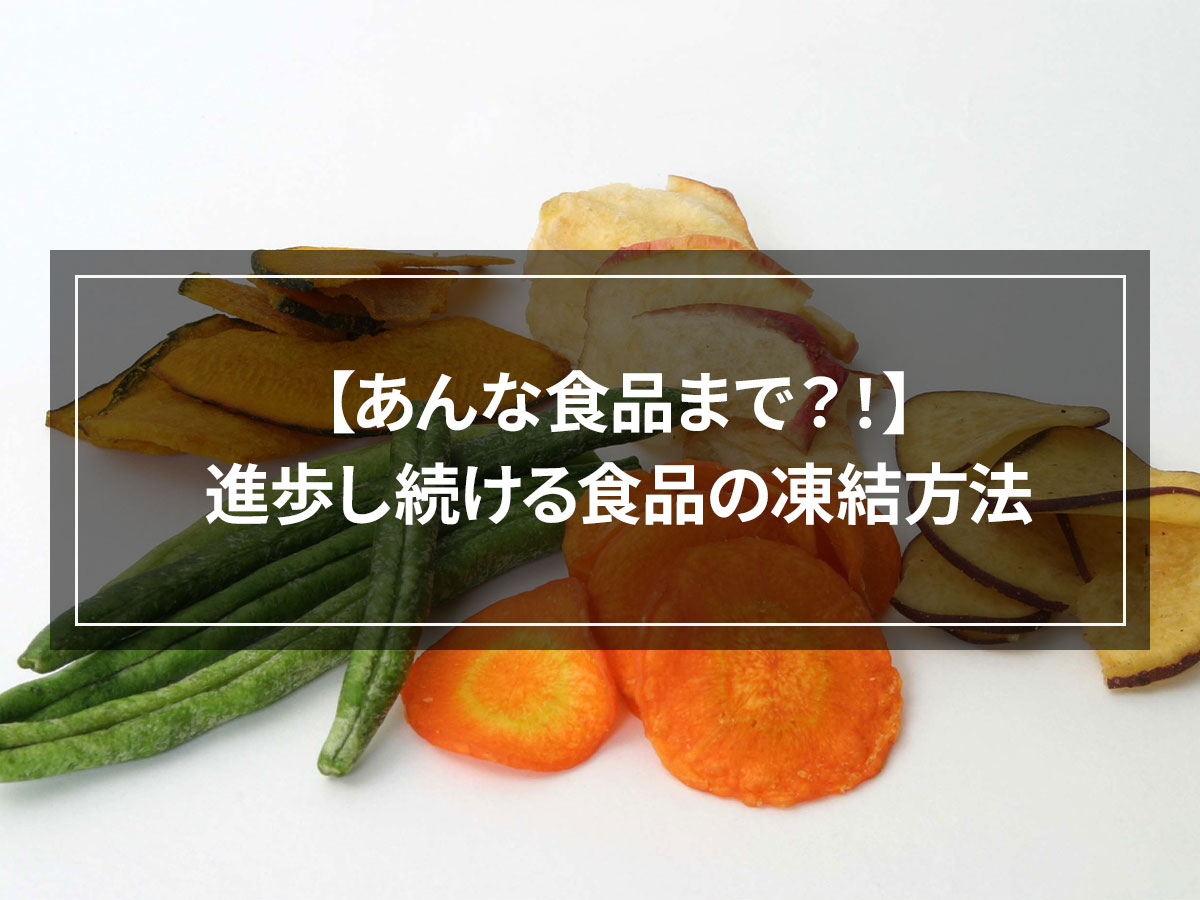
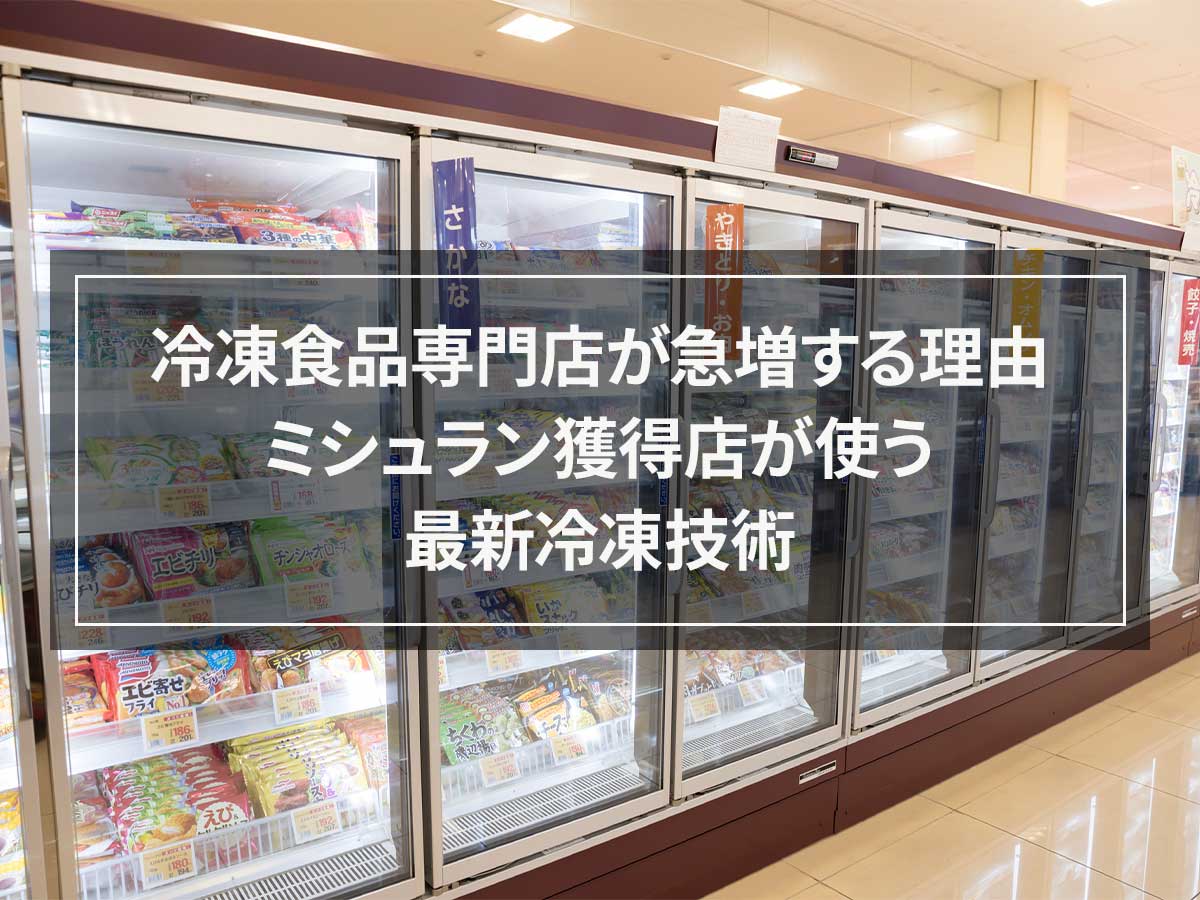
![[How long does frozen fish and meat last? ] Interesting expiration dates and tips to extend the shelf life](https://shunkashutou.com/wp-content/uploads/2023/08/f124221382987fe32d0ffda6b6f497c1.jpg)
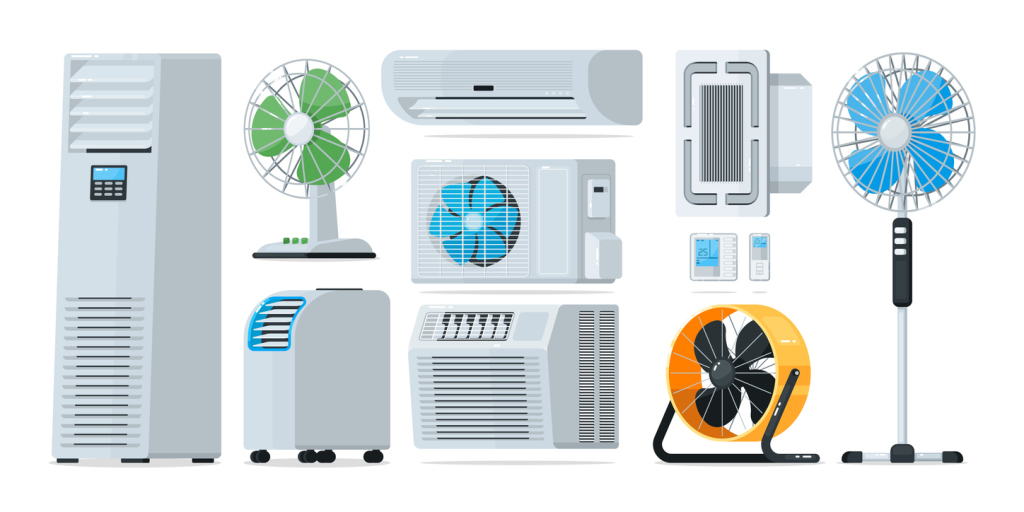
![[Must-see for beginners] What's so great about rapid freezers? Easy-to-understand explanation of the mechanism and benefits!](https://shunkashutou.com/wp-content/uploads/2020/12/9abf7961bd75c2a2af6fb61767b4fdb1-1.webp)
![[Long-lasting freshness! ] Explaining the advantages and disadvantages of chilled storage and chilled transportation](https://shunkashutou.com/wp-content/uploads/2016/11/64b437bd976e4ef73a85dbb64cdf9fc8.jpg)
![[Deliver delicious ham! ] Meat processing manufacturer’s rapid freezing implementation example](https://shunkashutou.com/wp-content/uploads/2016/02/0825c4a97ac8495fd2408a91574cede6.jpg)

